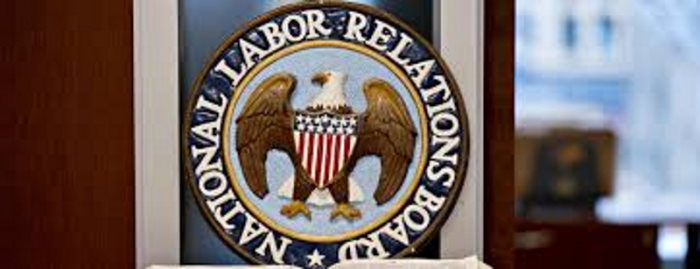
Bad news always seems gets more press than good news, right?
If you’re one who has kept your finger on the pulse of the franchise industry then you probably know about the claim filed by the National Labor Relations Board (“NLRB”) against a well-known fast food restaurant franchise system, challenging their franchisor and franchisee relationship. News of this magnitude grabs peoples’ attention and stirs up all kinds of opinions and discussions. Since this broke a few years ago, some franchise industry associations and the media have bombarded the public with reports of the NLRB and its seemingly fixated plan to “challenge the franchise model” and “overturn franchise law”. This type of buzz has shaken up many franchisors and created trepidation among both franchisors and franchisees. We’re here to tell you that all is NOT as it seems.
What is the Role of the NLRB?
It seems that whenever private and public sectors come together like this, there is likely politics involved. It’s noteworthy to understand some of the underlying politics and players in this whole hullabaloo; though this article won’t go into great detail on all aspects, we will touch on a few of them.
The buzz seems to suggest that the NLRB’s pursuit of franchising as a joint employer relationship (which means that the franchisor is really an employer and the franchisees are their employees) stemmed from three factors:
- Unionization – Improving employee rights for collective bargaining.
- Taxation – Increased revenue reporting to collect more taxes.
- Affordable Healthcare Act – A mandate for companies with greater than 50 employees.
Additionally, two other agencies seemed to have an interest in this whole franchisor and franchisee relationship situation: The Department of Labor Wage and Hour Division (“WHD”) and the Service Employees International Union (“SEIU”).
[Let’s reflect on a little background information for a moment. The role of the NLRB is, “to prevent and remedy unfair labor practices committed by private sector employers and unions.” This coincides with the WHD, whose mission is, “to promote and achieve compliance with labor standards to protect and enhance the welfare of the Nation’s workforce.” Both these agencies interact with the SEIU. The SEIU is the organization behind the “Fight for $15” which is the movement for fast food workers to make no less than $15 per hour. Basically, these three agencies/organizations fall in favor of pro-employee environments.]
Why is the NLRB Tinkering with the Franchising Industry
Now let’s get some real facts. Our CEO, Dave Waldman, attended a national attorney-driven conference on franchising. Needless to say, there was a lot of interest in this topic at the conference. An informative session took place that brought together representatives from both the NLRB and the WHD, who presented facts on this year’s actions and claims. Much to the attendees’ surprise, these agencies clearly stated they are not out to destroy the franchising industry.
The General Counsel and Head of the NLRB, spoke about his agency and the much publicized claim against the well-known fast food restaurant. He pointed out that a claim is filed when: 1) either a person has a complaint; or 2) because of a directive investigation. He explained that in reality, the NLRB doesn’t have time to be proactive, so directive investigations are less frequent. The claim against this well-known fast food restaurant was brought to them from the WHD, and originated as a complaint filed by some of this well-known fast food restaurant’s employees. Furthermore, the General Counsel and Head of the NLRB expressed that the NLRB understands that franchising requires some type of control to enforce brand representation, as long as the control is not excessive and the franchisor isn’t running day-to-day operations.
The claim against this well-known fast food restaurant franchise system stated excessive control; basically, this franchisor was exerting more control than was needed over its franchisees’ day-to-day operations (read this article to learn more about what excessive control means in franchising). The General Counsel and Head of the NLRB shed some light on a few details of this claim:
The original claim against this well-known fast food restaurant franchise system had 300 violations. Of those, 200 violations were thrown out immediately. Of the remaining violations, Mr. Griffin discussed two of them to help illustrate his point:
- This well-known fast food restaurant franchising company requires their franchisees to use the franchisor’s scheduling system which has algorithms embedded in the software that compares labor costs to gross sales. The software program has an alarm that goes off when the labor costs are too high, which requires their franchisee to take people off the clock (cut staff) until the formula is back in balance. It turns out that the franchisor also sends out people from their corporate office to routinely check and enforce this policy.
- It is important to know that this well-known fast food restaurant franchising company’s corporate office generally owns the land and the buildings of its franchise locations and then leases the space to its franchisees. This means that landlord and franchisor are one and the same. So if a demonstration by a franchisee’s employees takes place at the franchisee’s location, then in actuality the demonstration is really on the franchisor’s property. This is a very sticky and convoluted situation and one that very few franchisors have to worry about because they typically do not own the property and lease it back to the franchisee.
The General Counsel and Head of the NLRB did convey to the attendees of the conference that “there has been a lot of rhetoric that has nothing to do with the underlying issues” (maybe a small jab at the folks badmouthing them in the press). He also stated that, “The NLRB is not out hunting down violations.” During the conference and the interaction between The General Counsel and Head of the NLRB and the Administrator of the WHD, it is important to note that the Administrator of the WHD firmly stated, “This is not a game of gotcha.” Both the Administrator of the WHD and the General Counsel and Head of the NLRB clarified that one of their collective goals is to see that there is a system set up that is fair to employees and allows for collective bargaining.
More “good news” on this topic, and unfortunately less coverage in the media, are the claims filed by the NLRB against other food related franchise systems for franchisor and franchisee relationship violations. The NLRB issued a statement that one of these food related franchise systems was not deemed to be a “joint employer.” And as for the other food related franchise system, turns out the franchisor stepped in to help their franchisees bring their labor practices into compliance. This other food related franchise system’s corporate office offered resources that resolved all the wage and hour issues from the claims to the satisfaction of the NLRB and took it one step further by creating different employee-friendly initiatives that were easy for both their company-owned and franchise locations to implement. Way to go!
This illustrated a GREAT point of how this other food related franchise system did not just sit by the sidelines when their franchisees were in trouble. The Administrator of the WHD was quick to point out that how this franchisor stepped in to help their franchisees overcome their human resource-related issues is typically frowned upon by the members of the audience (in this case all the franchise attorneys) because of potential vicarious liability issues. He also said most franchisors take a back seat approach when it comes to helping their franchisees in such human resource matters because they are told by their counsel to maintain a hands-off approach and when this happens it is an example of a franchisor wanting their cake and eating it too. If a franchisor is expecting a franchisee to follow its brand standards then it only makes sense for the franchisor to provide assistance to the franchisee when they are in trouble (almost an unspoken expectation). Here in lies the dichotomy, and a topic for another time. Just keep in mind that it was just demonstrated it can be done correctly.
Is This the End of Franchising?
The franchise world is NOT crashing to a halt, so set your fears aside and rest easy; franchising is alive and well!
Certainly, there has been a lot of anxiety and confusion in the past several months over the NLRB’s actions, but we are happy to report that when you peel back the layers, all of a sudden it reveals a different story. In a recent publication authored by The Administrator of the WHD it is clearly stated, “Indeed, the existence of a franchise relationship, in and of itself, does not create a joint employer relationship.” While the well-known fast food franchise system was able to successfully prove they are not in a joint-employer relationship with its franchisees, franchisors and franchisees alike can breathe a sigh of relief that the sky is not falling and franchising is here to stay.
If you are wanting to franchise your business, do not fret. To learn about how joint employer relationship can hurt a franchise relationship and the steps we will take when building your franchise program so you can avoid getting into trouble, give us a call 1-877-615-5177. We will be more than happy to chat with you.




